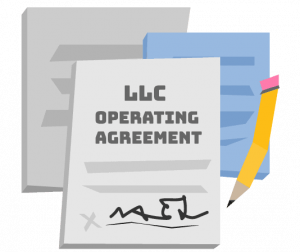Limited Liability Company (LLC)
Use our LLC guides and free business tools to start your LLC today. Select your state below to get started. Or, get a whole lot more when you hire Northwest to form your LLC for less money than a tank of gas. We'll register your company fast and stand up your entire LLC identity in minutes. That includes business address, mail scanning, an additional phone line on iOS or android app, domain name registration, business email, website, and hosting.
The Northwest LLC
$39 + State Fees
Launch Your LLC Identity in Minutes:
- Fast LLC Filing
- 1 Free Year of Registered Agent Service
- Business Address & Free Mail Forwarding
- LLC Operating Agreement
- Instant Domain, Website, Email & Phone Number
- Privacy By Default®

What is an LLC?
A Limited Liability Company (LLC) is a business entity that combines characteristics of both corporations and partnerships. Specifically, an LLC has the same limited liability protections afforded to corporations and, by default, the LLC is taxed as a partnership.
When someone forms an LLC, they are essentially creating an entity separate from themselves. Should this separate entity (the LLC) be sued, it is the entity, not the individual who created the entity, that is being sued (this is what it means to have limited liability). The advantage to limited liability is that, with few exceptions, should the LLC be sued, the LLC’s assets are at stake, not the individual’s.
A corporation, by default, is first taxed on its net income, then taxed again at a personal level when that net income is distributed to an owner. An LLC, like a partnership, is not taxed. The profits of an LLC are passed to the owners (called members) and taxed as personal income. This is referred to as pass-through taxation and only changes if the LLC elects to be taxed as an S-corporation or C-corporation. Limited liability and pass-through taxation are the two main defining characteristics of the LLC.
How to Start an LLC in Any State
An LLC is formed at the state level by filing a single form called the Articles of Organization, called the Certificate of Formation or Certificate of Organization in some states. The Articles of Organization are filed with the state agency in charge of business formations, usually that state’s Secretary of State.
No matter what your state calls the LLC creation form or the agency you file with, starting an LLC is a simple process. Here’s how it works.

1. Name your LLC
Before you can form an LLC, you’ll need to decide on your company name—and make sure it’s not already taken. Fortunately, every state has an online database where you can search for available names. When choosing a name, you’ll also need to avoid restricted words or phrases and include a business entity identifier, such as “L.L.C.,” “LLC,” or “Limited Liability Company.”
Check if your company name is available with a Free Business Name Search.

2. Designate a Registered Agent
In order for a state to grant you the privilege to form and establish a business (and begin the process of separating your personal identity with your LLC’s separate and distinct identity), the state wants to be sure that your business can be contacted by anyone regarding importance communications, such as legal notices or service of process. To do that, you will need to identify and list your registered agent and office in your formation paperwork. Because of the time sensitive nature of several communications delivered to a registered agent, it is important that you select a registered agent whom you can trust to get you vital communications in a prompt and timely manner.
Your registered agent must be regularly available to accept your LLC’s state and legal mail at a physical location in the state (a registered office). This means that if you opt to be your own registered agent, your name and home or office address will become part of your LLC’s permanent public record. Hiring a registered agent service can help you keep your personal information more private.
Find everything you need to know about Registered Agent Service for your LLC.

3. Submit LLC Articles of Organization
Now that you’ve made the big decisions, it’s time to file the LLC state form, typically called “Articles of Organization.” In most states, LLC formation documents are processed by the Secretary of State. Requirements vary, but at minimum, you’ll generally need to include your company name, your registered agent, and a signature.
If you’re looking to form your LLC yourself, we have pages on forming an LLC in every state that include that state’s Articles of Organization and free tools for filling out, downloading, and printing the articles you’ll need to file.
Simply skip down to our State LLC Requirements search and select your state.

4. Get an EIN
After starting an LLC, you’ll likely need a federal tax ID from the IRS. This Federal Employer Identification Number (known as a FEIN or EIN) is much like a social security number for your LLC. Every LLC that will pay taxes or hire employees needs an EIN. Also, an EIN is another indicator courts will look to when determining whether a distinct LLC identity exists separately from yourself.
Apply for an EIN with the IRS by filing Form SS-4. Applying online on the IRS website typically takes just a few minutes.
Everything you need to know about getting an EIN.

5. Write an LLC Operating Agreement
Your operating agreement is the governing document of your LLC. How the LLC distributes its profits and losses, who owns what percentage of the company, how management structure is defined, everything—it’s all in the operating agreement. Your operating agreement is an internal document, so you don’t need to file it with any state agency. However, it’s not something you want to be operating an LLC without.
Whether you’re operating as a single-member LLC, multi-member LLC, or manager-managed LLC, we have free templates and tools you need for creating and downloading your LLC operating agreement:
- Single-Member LLC Operating Agreement
- Multi-Member LLC Operating Agreement
- Manager-Managed LLC Operating Agreement

6. Open a Bank Account
To maintain your new LLC’s limited liability, you’ll need to keep your personal assets separate from business assets—so you’ll want to open a business bank account. Again, this is another factor courts will look at to determine whether to respect your LLC’s separate identity, or whether to disregard and allow liability to attach to you (and your assets) personally. The more you can show a separation between yourself and your LLC, the better!
Opening an account typically requires a few key business documents: your Articles of Organization, operating agreement and EIN. Depending on the bank—and how clearly powers are defined in your articles and agreement—you may also need an LLC resolution to open a bank account.
Make sure you have everything you need. We offer a free LLC resolution to open an LLC Bank Account.

7. Fund the LLC
Your business bank account doesn’t do much good empty—your new LLC needs to be funded with capital contributions. Let’s say your business needs $10,000 to start. Each member would pony up a portion of that $10K from their personal money or assets to put into the new business account. In exchange, members receive a proportionate percentage of membership interest. You can change the percentages at any time if people want to contribute more later on.
Need to document all this money changing hands? We offer free LLC Forms, including capital contribution agreements and membership certificates.

8. File State Reports & Taxes
After you form an LLC, your state may require you to update or confirm your company information with a business renewal or report, such as an annual or biennial report. Occasionally, these renewals or reports are combined with other state requirements. For instance, Arkansas pairs its annual report with an annual franchise tax. Some states, like Washington and Nevada also require LLCs to file an initial report. This is a report due upon or shortly after starting your business. And of course, states have their own LLC tax requirements, from informational filings to franchise taxes.
Learn about Business Renewals & Reports.
Why Have a Registered Agent Form Your LLC?
Professionals hire registered agent services like Northwest Registered Agent to form their LLCs — but why?
Logistics
Pros want their LLCs formed fast and they don’t want to pay extra for speed and competence. As a registered agent, we have offices in every state. It’s our job to know the fastest filing methods in every state. We’re on a first name basis with many of the people who work in every state’s Corporation Division. When you hire us to form your LLC, you inherently leverage our operational logistics for fast, professional service.
Privacy
As your registered agent, our registered office is listed on your LLC’s formation documents. We never sell your data. We don’t list your personal information on filings if we don’t have to. It’s all part of our commitment to Privacy by Default® and achieving a level of privacy you can’t get when you file yourself or hire a standard filing service.
Free Mail Forwarding & Business Address
As part of our standard service, we include limited digital mail forwarding in every state. Plus, you can list our address as your business address. Combining business address and mail forwarding ensures an increased level of security and service unmatched in the LLC formation industry.
Local Expertise
Knowing the ins and outs of every state doesn’t just help us provide faster, better service—it also helps you. We’re invested in a national team of Corporate Guides®, more than 200 local business experts you can call or email to answer questions about your LLC.
More than an LLC
Starting a business goes beyond filing paperwork with the state. If you’re serious about reaching clients and customers, you need a domain name, a website, a business phone number, business email addresses, and SSL Security. You can piece those services together with different companies, or you can hand it off to us. At Northwest, we’ll stand up your entire Business Identity instantly.
How Our LLC Formation Service Works
There are do-it-yourselfers, and there are people who need (or just want) a helping hand. We have helpful options for starting your LLC no matter who you are.

Free Account
Our free account gives you the state forms and tools you’ll need to start your LLC on your own. And, if you decide you want to hire Northwest instead, you can simply add our services inside your account.
LLC Formation Service
We can start your LLC for $39 plus state fees. This includes a full year of registered agent service, free limited mail forwarding, operating agreement, and a client account loaded with free forms and tools.
Limited Liability Company (LLC) FAQs
The beauty of the limited liability company is the lack of annual meetings. Corporations are usually required to have them. Granted, no one really is out there checking if a private corporation is holding annual meetings, but there are no annual meeting requirements with an LLC.
A multi-member Limited Liability Company may choose to hold annual meetings to go over the specifics of the LLC, but it is not required. You can call a meeting at any time with the other members.
If you’re a single-member limited liability company, it’s basically you just documenting changes if you need to. It’s really not as complicated as it may sound. The big reason why single owners choose an LLC is that there aren’t really voting requirements for decisions, and there aren’t officer roles that you would have to fill out on paper, as with a corporation.
The members of the limited liability company are the owners. Usually single-member LLCs would be member-managed, but on the public documents in almost every state you have to list the members or managers. So you might want to be member-managed and list just the manager on public documents, in some cases, even if you’re a single-member LLC.
Managers for a multi-member limited liability company can be an important distinction. Let’s say 10 different families invest $1,000 each in a ski-in, ski-out vacation rental property. Each family would make up the members, but none of them live at the ski resort, so they might hire a property manager to rent it out when they aren’t using it and maintain it. It would be smart to designate one or two of the members and the property manager as the managers of the LLC for day-to-day operations of the vacation rental.
Members can always vote out the manager(s) of the limited liability company.
The best state for an LLC formation is almost always the state where you live, particularly if you’re doing business in your home state.
If you’re doing things on the internet or using the company as a holding company for assets, forming an LLC in a tax-friendly state like South Dakota, Wyoming, Nevada, Montana, or Delaware might bring some benefits, but we’d recommend consulting with a tax professional before going that route.
Forming a company in a tax-free state like Wyoming usually won’t be of benefit to you if you live in a normal taxing state like New Mexico or anywhere with a normal tax burden. Living in a place like California, New York, New Jersey, or any location with high fees and high taxes, can present some nice options of forming an LLC out of state and trying to run some of the income through it that way. Electing the LLC as a C corporation keeps the money from getting down onto you personally where you might need to pay a high personal income tax rate in a highly taxed state.
At the end of the day, it’s always simplest and sometimes cheapest, in the long run, to incorporate or form an LLC in your home state. We’ll be glad to help you no matter what you decide.
The major differences between an LLC and a corporation boil down to ownership, management, and taxes. LLCs are owned by members. Members can manage directly or appoint managers, giving LLCs the flexibility of operating like partnerships or corporations. Corporations (except for non-stock corporations like nonprofits) are owned by shareholders. Shareholders elect a board of directors to make business decisions. The board of directors appoints officers to execute those decisions.
When it comes to taxes, LLCs are taxed as partnerships unless they choose to be taxed as S-corps or C-corps. Corporations are taxed as C-corps unless they choose to be taxed as S-corps. Corporations can’t be taxed as partnerships, meaning LLCs have greater tax flexibility.
Learn more about these differences on our LLC vs Corporation page.
Typically around $100. Each state sets its own fees to file LLC articles of organization. This tends to be flat filing fee, ranging from $40 (Kentucky) to $500 (Massachusetts). Tennessee, however, bases their LLC formation fee on how many members your business has, so their fee can be anywhere from $300 to $3,000.
At Northwest, we can form your LLC for just $39 plus state fees, a total that includes one year of registered agent service.
No, but a sole proprietor can become an LLC. A sole properietorship and an LLC are two different kinds of business structures. If you’re a solo business owner that has never registered with the state to form a business entity, you have a sole proprietorship.
A sole proprietor can easily become an LLC by filing articles of organization with the state. An LLC typically has increased reporting requirements but receives benefits that are out-of-reach to sole proprietors, such as limited liability and tax flexibility.
Yes, an LLC can be an S-corp. An LLC is a business entity created by filing articles of organization with the state. An S-corp is simply an IRS tax classification that LLCs (and corporations) can choose if they meet the requirements. In many cases, an S-corp election can save LLCs money on employment taxes.
Learn more on our S-corp vs LLC page.
Yes, forming an LLC can help you reduce your public footprint. Living publicly—and giving away your data to be sold and resold—has been normalized. It’s possible to take back control of your own information in a number of ways, and in some cases, forming an LLC can help. Note that this will require taking certain steps, like hiring a registered agent service, to keep your personal information off public filings.
Learn more about how to Live Privately with an LLC.
There are several different types of LLCs that can vary depending on how you set up your business, and the state and industry in which you operate. Some common types of LLCs include:
-
Single Member LLC (with only one owner)
-
Professional LLCs (for state-licensed professions, like doctors and lawyers)
-
Series LLC (for LLCs needing separate liability protection for different parts of their business)
There are also LLCs taxed as S-corps and C-corps. LLC management is another way to categorize LLCs. There are member-managed LLCs and manager-managed LLCs. It’s even possible to form a nonprofit LLC in a handful of states.
A foreign LLC is a limited liability company registered to do business in a state other than the LLC’s home state. This is also called foreign qualification. An LLC foreign qualifies to operate in another state by registering as a foreign entity with that state’s Secretary of State.
Your LLC will need a Registered Agent located in every state where you do business. One advantage of hiring Northwest is that we have offices in all 50 U.S. states, the District of Columbia, and Puerto Rico, so we can serve as your LLC’s Registered Agent wherever you choose to do business in the United States.
Learn more at our guide on Register Your Business in a New State.
Yes and no. For an LLC with default tax classification, the company itself doesn’t pay federal taxes. Instead, profits are distributed to owners (members) who then report those earnings on their personal filings. This is known as pass-through taxation.
However, LLCs might be required to pay various state taxes, such as franchise taxes. LLCs can also elect to be taxed as corporations—in which case, the LLC itself may owe taxes.
For a deep dive into LLC taxes, see our LLC Taxes page.
Yes, you can file articles to form your LLC yourself. However, there are a few downsides to doing so.
First, any information you list in your articles becomes a part of the public record—permanently. There’s no going back and erasing your home address or other personal info once it’s out there. When you file yourself, you are the “organizer” of your LLC and usually need to list your name and address. In most states, you can avoid putting your personal address (and in a few states, even your name) on this public doc by hiring a service like Northwest to be your registered agent and organizer.
Second, when filing on your own, it’s easy to make expensive mistakes that can cause your filing to be rejected or that can require pricey amendments down the road. At Northwest, we form LLCs across the nation every day. We know the ins and outs of every state from Alabama to Wyoming.
-
Maybe you prefer to keep your personal address off your public filings.
-
Maybe you need a registered agent, operating agreement, business address and mail forwarding—all of which is included with our LLC formation.
-
Maybe you have a lot of business questions our Corporate Guides® can answer for you.
-
Maybe you’re tired of companies selling your data.
-
Or maybe you just don’t want to have to file more paperwork.
Whatever your reasons are, Northwest is here to help you start your LLC the right way.
*This is informational commentary, not advice. This information is intended strictly for informational purposes and does not constitute legal advice or a substitute for legal counsel. This information is not intended to create, nor does your receipt, viewing, or use of it constitute, an attorney-client relationship. More information is available in our Terms of Service.